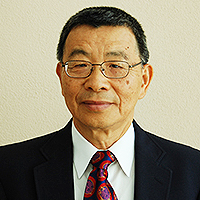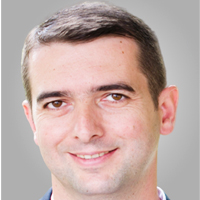Unusual presentation of a bilateral basilar stroke: Bradycardia
Published on: 7th September, 2017
OCLC Number/Unique Identifier: 7905950909
We report a case of 79-year-old man who presented to our emergency department (ED) for lipothymia. The patient developed significant bradycardia with hypotension. His EKG objectified a slow atrial fibrillation .the patient rapidly installed a coma. A non-contrast CT brain scan showed a bilateral vertebrobasilar ischemic stroke.
Circulating platelet-derived vesicle in atrial fibrillation
Published on: 27th June, 2019
OCLC Number/Unique Identifier: 8195602066
Platelet vesiculation is common factor contributing in coagulation and thromboembolism in patients with atrial fibrillation (AF). Platelet-derived vesicles are involved in the coagulation, thromboembolism, microvascular inflammation, arterial stiffness, vascular calcification, atherosclerotic plaque shaping and rupture, endothelial dysfunction, cardiac remodelling, and kidney dysfunction. Recent clinical studies have revealed elevated concentrations of platelet-derived vesicles in peripheral blood of patients with current AF and history of AF. The aim of the mini review is to discuss the role of platelet-derived micro vesicles as predictive biomarker in AF. Serial measures of circulating levels of platelet-derived vesicules are discussed to be useful in stratification of AF patients at risk of thromboembolic complications, but there is limiting evidence regarding their predictive value that requires further investigations in large clinical trials.
Evaluation of Long-term Antithrombotic Management for Atrial Fibrillation Patients with a History of Coronary Stent Implantation
Published on: 12th September, 2024
Purpose: American expert consensus publications recommend discontinuation of antiplatelet agents 6 to 12 months after Percutaneous Coronary Intervention (PCI) in patients with Atrial Fibrillation (AF) who require chronic anticoagulation, and use of oral anticoagulant monotherapy thereafter. This study aimed to assess real-world long-term antithrombotic therapy management practices and factors associated with the continuation of antiplatelet agents past 12 months post-PCI in patients with AF requiring chronic anticoagulation. Methods: Patients with AF and a history of PCI greater than 12 months before their most recent encounter with physicians at an outpatient electrophysiology clinic were identified by chart review. Patient demographics, clinical characteristics, and current antithrombotic regimen were collected from encounters that occurred between July 2019 and June 2022. The independent predictive factors associated with the continuation of antiplatelet agents were identified using univariate and regression analyses. Results: Out of 66 patients, 67% continued antiplatelet therapy for greater than 12 months post-PCI. Patients on antiplatelets were significantly less likely to have bare metal stents (p = 0.006), be greater than five years post-PCI (p = 0.002), and have a HASBLED score of two or less (p = 0.028) when compared to patients on oral anticoagulant monotherapy. Bare metal stent history (p = 0.045) and HASBLED score of two or less (p = 0.016) were also significant in regression analysis.Conclusion: This study found that most patients with AF and a history of PCI continued antiplatelet therapy longer than 12 months post-PCI, often despite the high bleeding risk.




